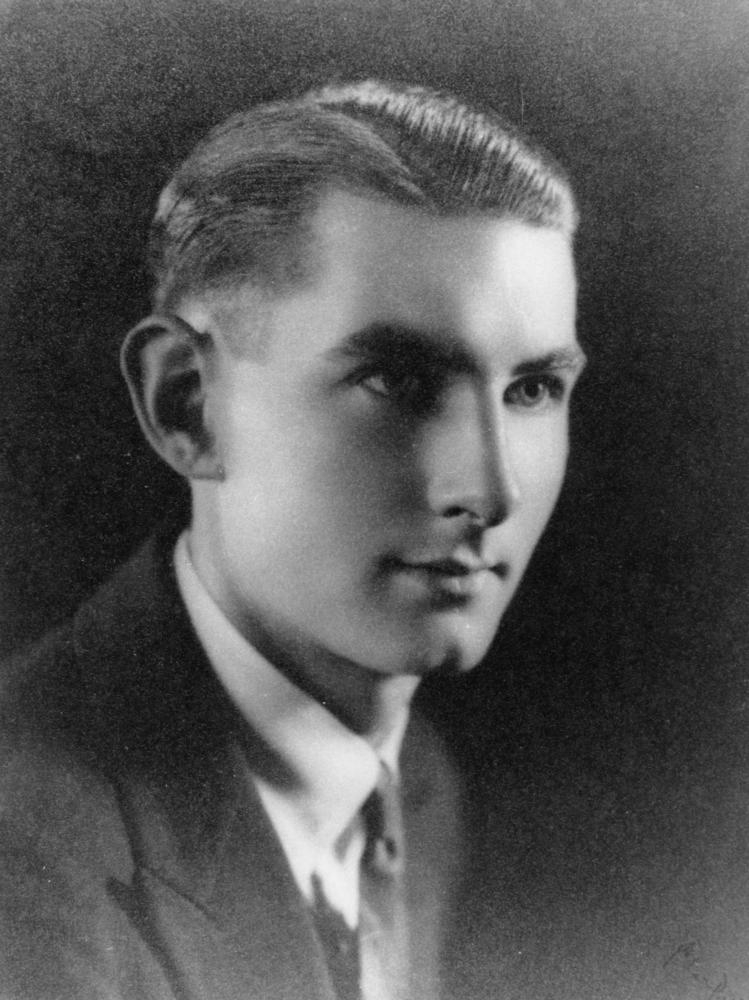Greenwood was born on 17 September 1913 at Terowie, South Australia, son of Rudolph Oertel Nadebaum, Congregational minister, and his wife Lizzie Ann, née Hales. The family name, Greenwood, was adopted around 1915 when the family moved to Sydney.
Greenwood was educated at the University of Sydney obtaining both with first-class honours in history and the university medal in 1935. Soon afterwards Greenwood completed his Master’s degree with a thesis on early Australian-American relations (1937). This followed by his doctorate in 1939 at the London School of Economics and Political Science, for a thesis on Australian federalism, supervised by Harold Laski.
Greenwood’s early academic appointments were as a lecturer at the New England University College (Armidale, 1939), a lecturer (1942-1947) and Acting Professor (1947-1948) at the University of Sydney.
In 1949 Greenwood was appointed the (Sir Samuel) McCaughey Professor of History at the University of Queensland. This appointment meant that he was heading the history and political science department with three lecturers on his staff. His major legacy was the growth of the history discipline in Queensland. By the mid-1970s Greenwood presided over a department of twenty-five lecturers and twelve tutors. Along with the increase with staff members was an emphasis on good teaching and research innovation.
However, it was Greenwood’s published work, and that of his staff, which increased substantially the status and reputation of the department. Most important, was the founding of the Australian Journal of Politics and History in 1955, which Greenwood edited until 1982. Greenwood was also noted for his broad interpretive approach in The Modern World (1964). Much of the publishing success was due to Greenwood’s ability to collaborate with leading scholars in the field:
- four volumes on Australian foreign policy in Australia in World Affairs (1950 to 1970), co-edited with Norman Harper;
- Documents on Australian International Affairs 1901-1918 (1977), co-edited with Charles Grimshaw; and
- Design for Diversity: Library Services for Higher Education and Research in Australia (1977) co-edited with Harrison Bryan.
In this era, very few Queenslanders, if there were any other, held such high national position in humanities and social sciences:
- member of the Social Science Research Council of Australia (appointed 1950);
- fellow of the Academy of the Social Sciences in Australia (elected 1971);
- member of the Australian Humanities Research Council (1956);
- fellow (1969) of the Australian Academy of the Humanities; and
- member on the national committee of the Australian Dictionary of Biography (1960-1974)
Greenwood was a member of the University of Queensland Senate (1953-1983), and on the interim council of the University of Papua New Guinea (1967).
See Gordon Greenwood on Scatterplot Matrix.
Reference
Ross Johnston, 'Greenwood, Gordon (1913–1986)', Australian Dictionary of Biography, National Centre of Biography, Australian National University, http://adb.anu.edu.au/biography/greenwood-gordon-12563/text22617, published in hardcopy 2007, accessed online 23 September 2014.
Jump to 1st Run Scatterplot Matrix
Gordon Greenwood (1913–1986)
Professor of History, Commonwealth and International Historian


